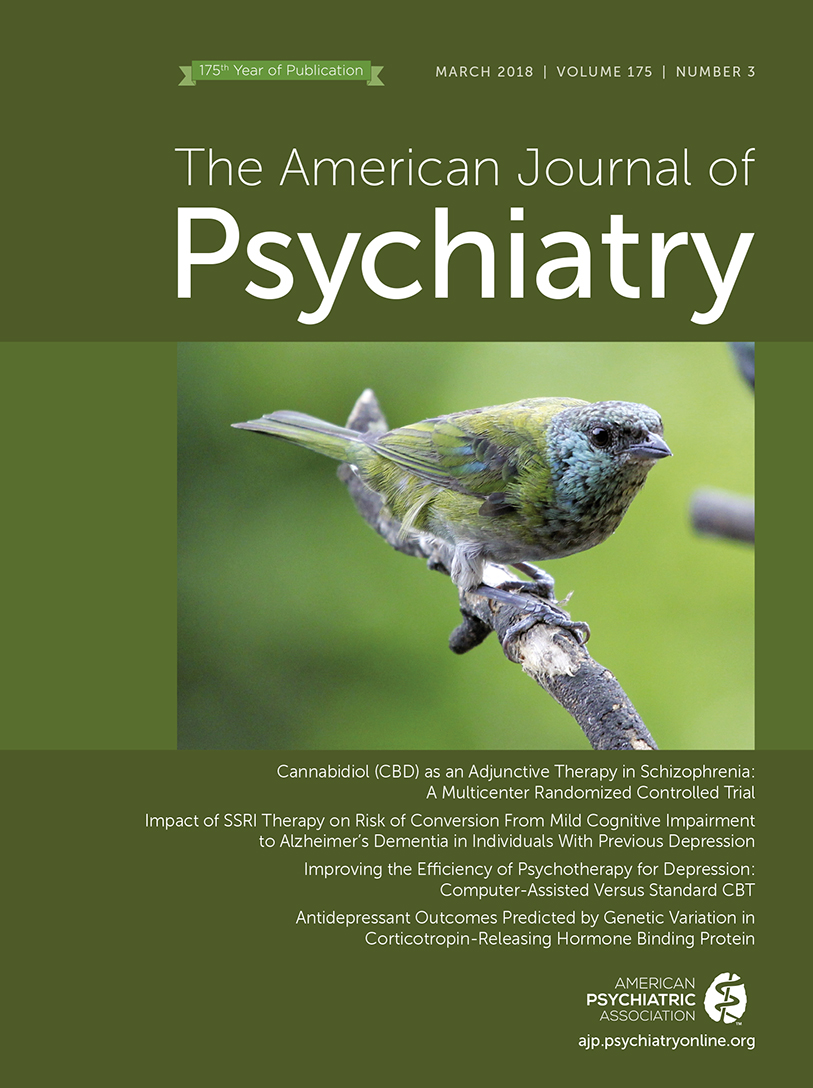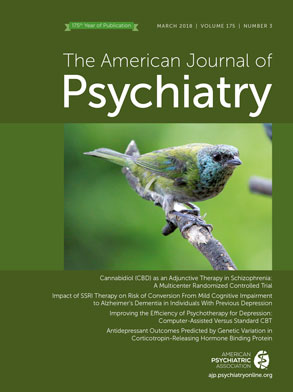T
o the E
ditor: The article by Olfson et al., titled “Cannabis Use and Risk of Prescription Opioid Use Disorder in the United States” (
1), published in the January 2018 issue of the
Journal, highlights an important relationship between cannabis use and nonmedical opioid use. A literature review indicates that increased levels of cannabis use are commonly observed in conjunction with opioid use, both medically and nonmedically (
2). The findings conveyed by Olfson et al. demonstrate that cannabis use increases the risk of nonmedical opioid use, rightfully calling for caution from those advocating for medical marijuana as a solution to opioid abuse. While the methods used and the association discovered are legitimate, it seems necessary to question how these data should be contextualized and applied in a clinical setting. As noted in the Discussion section, a limitation of this study is that it did not separate illicit cannabis use from medical use. Although social perceptions of cannabis use may have shifted slightly over the previous decade, federal legislation on cannabis has not, and in many states it is still illegal to obtain and consume cannabis. It seems possible that individuals who would use cannabis illegally may also have a higher risk of abusing future opioid prescriptions. Therefore, it seems necessary to be equally cautious of studies measuring illicit cannabis use and applying the results to directly dispel potential benefits cannabis can have by replacing opioids in a physician’s management of acute pain. In a self-reported study of 2,897 medical cannabis users, 841 respondents reported using an opioid-based pain medication currently or in the past 6 months, with 61% of these respondents using cannabis along with their opioid prescriptions. Ninety-seven percent of these joint users reported that they are able to decrease the amount of opioids they consume when they also use cannabis (
3). Cannabis use may result in an increased risk of abuse in patients given subsequent opioid prescriptions, but is the overall risk of opioid abuse in a population mitigated by treating pain with a cannabis therapy rather than introducing patients to opioids?
Recent work that has been examining medical cannabis laws has concluded that the passage of such laws decreased the rates of opioid mortality by a quarter (
4) and reduced the rates of opioid prescriptions between an estimated 265 and 1,826 daily doses per physician per year (
5). As Olfson et al. noted, it is important to be careful not to overgeneralize the findings of such studies to the framework of individual patient interactions. However, it is important to note that there are factors at work in these states worth studying that are significantly decreasing the frequency of opioid abuse. To truly understand the impact that medical cannabis use can have on nonmedical opioid use, standardized clinical trials comparing cannabis therapies with opioid prescriptions seem necessary. Only by measuring pain management rates, adverse side effects, and prospective opioid abuse rates within these populations will there be a clear picture of the role that medical cannabis plays in stifling or enhancing nonmedical opioid use.

